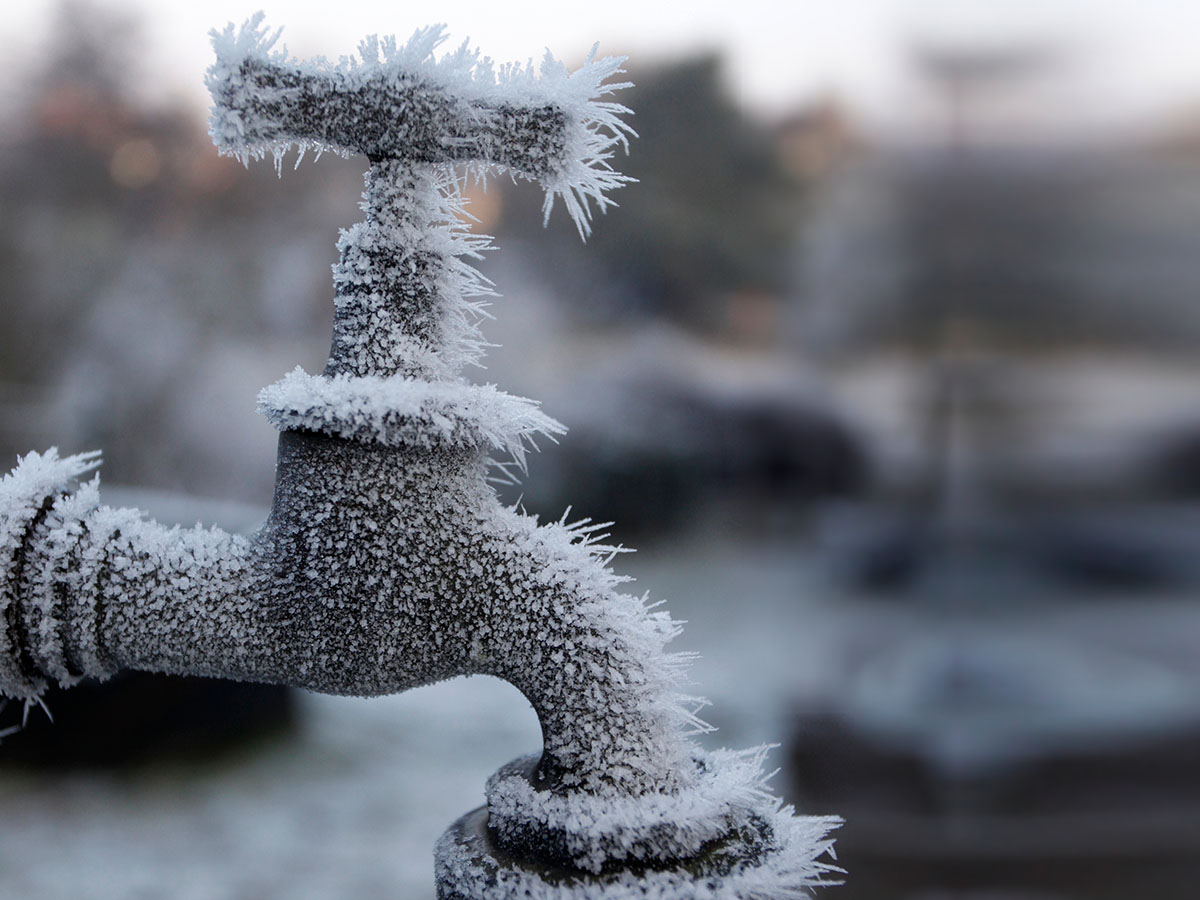Essential Tips for Preventing Frozen Plumbing in Cold Weather Conditions
Essential Tips for Preventing Frozen Plumbing in Cold Weather Conditions
Blog Article
We've encountered this great article on Winter Plumbing Precautions: Preventing Frozen Pipes down the page on the web and figured it made sense to quickly share it with you on this page.

Winter can damage your pipes, especially by freezing pipelines. Here's just how to prevent it from taking place and what to do if it does.
Introduction
As temperature levels decline, the risk of icy pipelines boosts, possibly resulting in expensive fixings and water damage. Comprehending just how to avoid icy pipes is critical for property owners in cool environments.
Avoidance Tips
Shielding vulnerable pipes
Wrap pipes in insulation sleeves or make use of heat tape to shield them from freezing temperature levels. Focus on pipes in unheated or external areas of the home.
Heating techniques
Maintain indoor rooms sufficiently heated up, particularly areas with plumbing. Open closet doors to permit cozy air to distribute around pipes under sinks.
How to identify icy pipes
Search for decreased water circulation from taps, unusual smells or noises from pipes, and noticeable frost on subjected pipes.
Long-Term Solutions
Architectural modifications
Consider rerouting pipelines away from outside walls or unheated locations. Add added insulation to attics, cellars, and crawl spaces.
Upgrading insulation
Buy top notch insulation for pipes, attic rooms, and walls. Appropriate insulation aids maintain regular temperatures and minimizes the threat of frozen pipelines.
Protecting Outside Pipes
Yard hose pipes and outside taps
Disconnect and drain garden pipes prior to winter. Set up frost-proof faucets or cover exterior taps with insulated caps.
Understanding Frozen Pipelines
What causes pipelines to freeze?
Pipelines freeze when exposed to temperatures below 32 ° F (0 ° C) for extended periods. As water inside the pipelines ices up, it broadens, taxing the pipeline walls and potentially causing them to burst.
Dangers and problems
Frozen pipelines can result in water system disruptions, building damage, and expensive repairs. Burst pipes can flood homes and cause comprehensive architectural damages.
Indications of Frozen Piping
Recognizing icy pipelines early can stop them from rupturing.
What to Do If Your Pipelines Freeze
Immediate actions to take
If you think frozen pipelines, maintain taps available to alleviate pressure as the ice thaws. Make use of a hairdryer or towels soaked in hot water to thaw pipelines slowly.
Conclusion
Avoiding frozen pipes calls for positive measures and quick feedbacks. By understanding the reasons, indications, and preventive measures, home owners can shield their plumbing during cold weather.
Helpful Tips to Prevent Frozen Pipes this Winter
UNDERSTANDING THE BASICS: WHY PIPES FREEZE AND WHY IT’S A PROBLEM
Water freezing inside pipes is common during the winter months, but understanding why pipes freeze, and the potential problems it can cause is crucial in preventing such incidents. This section will delve into the basics of why pipes freeze and the associated problems that may arise.
THE SCIENCE BEHIND FROZEN PIPES
When water reaches freezing temperatures, it undergoes a physical transformation and solidifies into ice. This expansion of water as it freezes is the primary reason pipes can burst. As the water inside the pipe freezes, it expands, creating immense pressure on the walls. If the pressure becomes too great, the pipe can crack or rupture, leading to leaks and water damage.
FACTORS THAT CONTRIBUTE TO PIPE FREEZING
Low Temperatures: Extremely cold weather, especially below freezing, increases the risk of pipes freezing. Uninsulated or Poorly Insulated Pipes: Pipes located in unheated areas, such as basements, crawl spaces, or attics, are more prone to freezing. Insufficient insulation or lack of insulation altogether exacerbates the problem. Exterior Wall Exposure: Pipes running along exterior walls are susceptible to freezing as they encounter colder temperatures outside. Lack of Heating or Temperature Regulation: Inadequate heating or inconsistent temperature control in your home can contribute to frozen pipes. PROBLEMS CAUSED BY FROZEN PIPES
- Pipe Bursting: As mentioned earlier, the expansion of water as it freezes can cause pipes to burst, resulting in significant water damage.
- Water Damage: When pipes burst, it can lead to flooding and water damage to your property, including walls, ceilings, flooring, and personal belongings.
- Structural Damage: Prolonged exposure to water from burst pipes can compromise the structural integrity of your home, leading to costly repairs.
- Mold and Mildew Growth: Excess moisture from water damage can create a favorable environment for mold and mildew growth, posing health risks to occupants.
- Disrupted Water Supply: Frozen pipes can also result in a complete or partial loss of water supply until the issue is resolved.
WHY CERTAIN PIPES ARE MORE PRONE TO FREEZING
- Location: Pipes located in unheated or poorly insulated areas, such as basements, crawl spaces, attics, or exterior walls, are at higher risk of freezing.
- Exterior Pipes: Outdoor pipes, such as those used for irrigation or exposed plumbing, are particularly vulnerable to freezing as they are directly exposed to the elements.
- Supply Lines: Pipes that carry water from the main water supply into your home, including the main water line, are critical to protect as freezing in these lines can affect your entire plumbing system.
- Underground Pipes: Pipes buried underground, such as those connected to sprinkler systems or outdoor faucets, can be susceptible to freezing if not properly insulated.
https://busybusy.com/blog/helpful-tips-to-prevent-frozen-pipes-this-winter/

Do you like reading about Helpful Tips to Prevent Frozen Pipes this Winter? Try leaving a remark below. We'd be glad to see your views about this post. In hopes that you come back again later on. Loved our write-up? Please quickly share it. Let another person discover it. I recognize the value of your readership.
Call Us Today Report this page